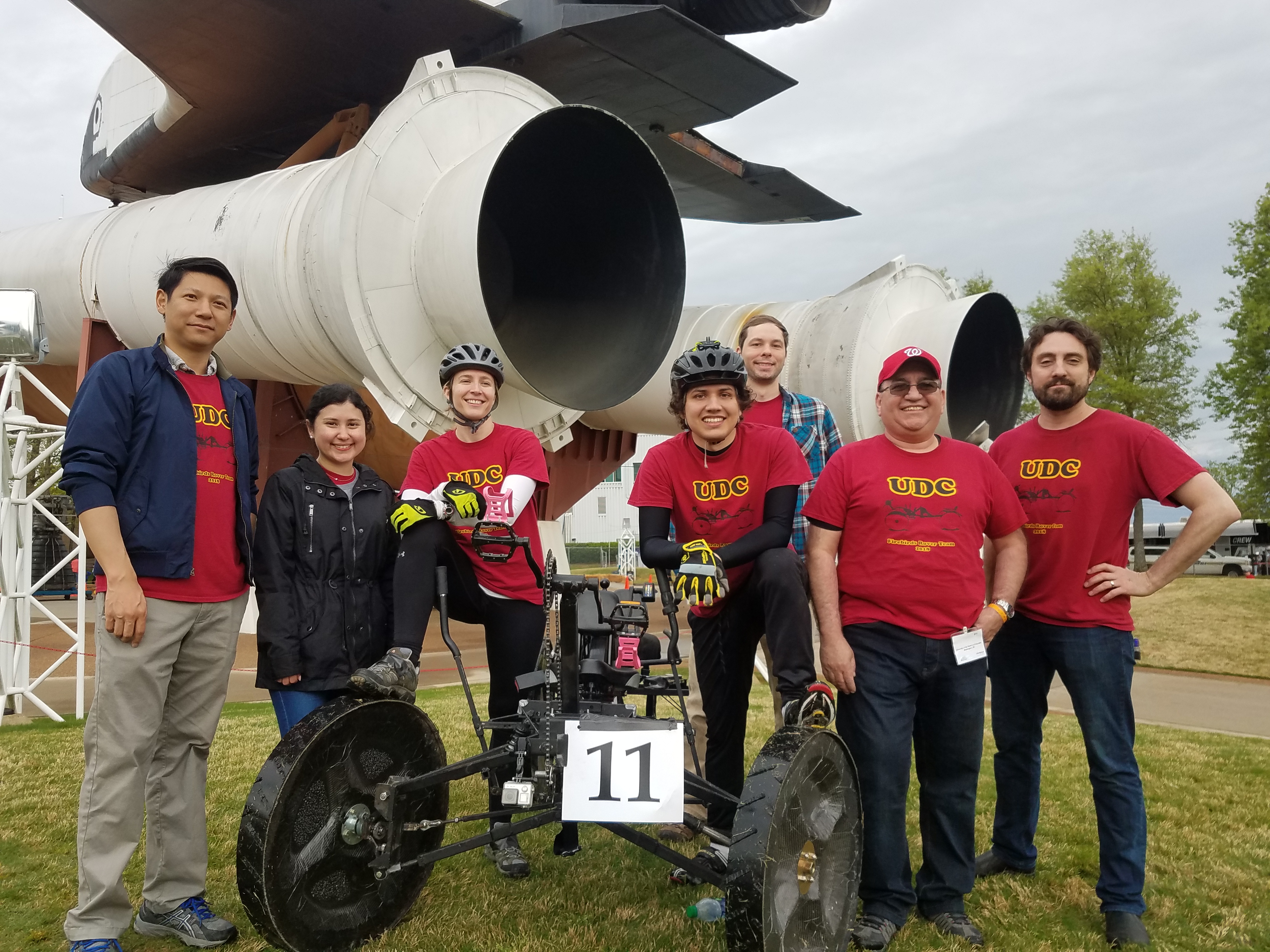Center for Advanced Manufacturing in Space Technology & Applied Research at UDC
CAM-STAR focus on research investigating various Advanced Manufacturing (AM) techniques and their application in Space Exploration Technology and Research. Our educational goals leverage the Center’s research activities and the faculty’s expertise to prepare a diverse, skilled workforce in AM research and engineering with a focus on Space Technology and Applications.
Mission

Four Primary Goals
To help UDC become a premier research institution that supports student research and professional development, primarily benefitting students from under-represented and minority groups.
- To advance UDC’s engineering curriculum by integrating multidisciplinary Space Technology-related education and experiential experience to attract, train, and retain students, thereby forming a diverse workforce for NASA-related fields.
- To support UDC’s faculty cohort performing research on NASA related areas.
- To strengthen UDC’s collaboration with NASA, industries, research institutions, neighboring federal labs, minority serving colleges, and local middle/high schools.
Focus
- Support AM Related Research:
- CAM-STAR will fund graduate students to research in the field of AM (i.e, Additive Manufacturing & Nano-Manufacturing), and produce peer-reviewed publications
- Undergraduate students will be engaged in research projects under affiliated CAM-STAR faculty, and national/international competitions
- CAM-STAR will facilitate UDC students to apply for internship opportunities at NASA centers, National Laboratories, and Industry Partners year-round
- CAM-STAR will support Co-PIs research on AM, establish and foster collaboration with NASA centers, National Laboratory and Industry Partners
- CAM-STAR will increase the awareness of UDC and partnering institutes’ faculty cohort and students on research and STEM engagement opportunities of NASA mission directorates
- Support AM Related Education:
- CAM-STAR will support UDC students for internship & fellowship at NASA or other federal lab or industry.
- CAM-STAR will support the AM concentration to provide cutting edge AM education in UDC engineering curriculum.
- CAM-STAR will support experiential learning in engineering curriculum via collaborative projects (i.e, senior capstone projects, course projects and research experience credits) with partnering NASA centers, federal laboratories, and industries
- CAM-STAR will support curriculum modernization with AM oriented contents in various engineering courses from freshman year to graduate level
- CAM-STAR will support UDC students and their engagement in local, national and international engineering competitions including but not limited to: NASA Human Rover Exploration Challenge, Revolutionary Aerospace Systems Concepts – Academic Linkage (RASC-AL) Competition, NASA Robotic Mining Competition, NASA’s BIG Idea Challenge.
- Support STEM Recruitment and Outreach:
- CAM-STAR will promote NASA Community College Aerospace Scholars (NCAS) program to local high school and community college including Montgomery College, UDC community College, North Virginia Community College
- CAM-STAR will engage UDC students as NASA ambassadors and reach out to local middle, high schools and community colleges on exciting projects and competitions in STEM and Space technology
- CAM-STAR will attract highly talented minority students in UDC’s STEM programs via exciting hands on outreach & recruitment activities
- CAM-STAR will offer workshops and hands-on activities for DC-MD-VA middle and high school teachers and students
- Institutional Capacity building: to become a premier research institution through initiating and strengthening partnerships with NASA centers, nearby research universities, space- related industries, and neighboring federal research laboratories
- CAM-STAR will initiate a Faculty Research Seed Grant Program for junior faculty at UDC to jump start their research relevant to NASA’s research priorities and provide them with financial support to engage UDC students in research.
- CAM-STAR will support curriculum modifications for future STEM workforce especially in the area of AM
- CAM-STAR will provide UDC faculty with professional development opportunities, especially assist new faculty research to enable them to build their program while getting their help in CAM-STAR objectives
- CAM-STAR will support UDC SEAS Research Center in AM related industrial research and government contracts
- CAM-STAR will develop state-of-the-art laboratory for research and education in AM, and support UDC’s other research Centers including but not limited to NSF-CRNE, DOE-AM Post-Processing Consortium, NIH-Biomedical Research Center, and NSF STEM Center
- CAM-STAR will partner with UDC’s non-engineering Schools and centers to broaden the impact in the field of education and professional development.
- Sustainability: CAM-STAR will strive to become self-sustainable by utilizing faculty expertise, research capacity, and lean management.
- CAM-STAR will support affiliated faculty in research development, extramural funding proposals, and intellectual properties commercialization including patents
- CAM-STAR will support UDC startup, and affiliated faculty for pursing of small business and government contracts
- Partnerships: CAM-STAR will foster its partnerships with federal laboratories and Industries to do joint research and engage UDC students in collaborative projects and internships.
Director
Dr. Jiajun Xu
jiajun.xu@udc.edu
202.274.5048






